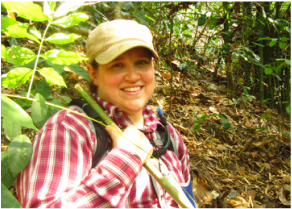Teaching

Courses Taught and Sample Syllabi:
|
My teaching style is strongly influenced by the philosophical schools of existentialism and pragmatism. Anthropology, particularly biological anthropology, is uniquely situated for engaging in current issues from both a biological and sociocultural perspective. Through open class discussion, Socratic questioning, and small group activities, I guide students through critical and reflexive thinking about modern biological and cultural diversity. I challenge students to examine their lived experiences as we discuss the social construction of race and race relations in modern society. We also draw on public discourse of current events and exciting new discoveries in science and paleoanthropology specifically as an opportunity for critical analysis. I use my own research on white-handed gibbons to demonstrate the ancient origins of within-species variation in ecology and complex social behaviors and also as a means of highlighting the participation of women in the sciences. I strongly support hands-on experiences for undergraduates; students in my classes conduct primate behavioral observations at the local zoo, mini-ethnographic studies in their own communities, and hominid morphology comparative projects, as well as a number of other direct anthropological experiences. I look forward to bringing students to Khao Nang Rum for a primatology/conservation biology field school in the future.
|